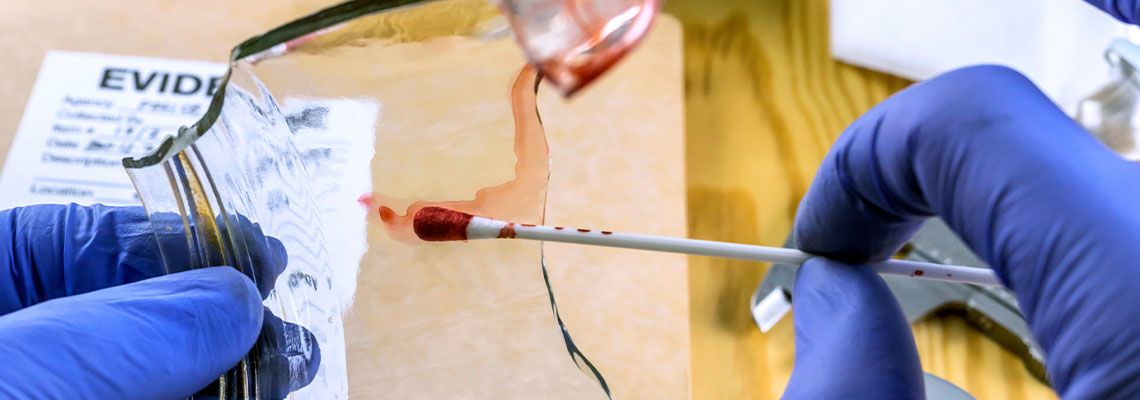
DNA Evidence in Criminal Cases
When a crime occurs, investigators often collect biological samples from the scene. This could be anything from blood, hair, skin cells, or saliva. These samples are then analyzed in a lab, where scientists extract the DNA and create a profile. This profile can then be compared to DNA from suspects or entered into a database to search for matches.
However, it's not as simple as it sounds. DNA analysis is a complex process that requires meticulous attention to detail. Contamination can easily occur, leading to false results. And even when the DNA is perfectly preserved, it's not always possible to get a clear, complete profile. Sometimes, only a partial profile can be obtained, which can lead to uncertainties.
Understanding the Science Behind DNA Evidence
Let's start with the basics. DNA, or deoxyribonucleic acid, is the unique genetic blueprint that makes you...you. It's found in nearly every cell in your body, and (apart from identical twins) no two people share the exact same DNA.
That's why it's such a powerful tool in criminal investigations. When a sample of DNA is collected from a crime scene, it can be compared to known DNA samples from suspects or entered into databases of convicted criminals.
But how exactly does this comparison work? Well, scientists use a process called Polymerase Chain Reaction (PCR) to amplify the amount of DNA in a sample. This makes it easier to analyze and compare. Then, they use a technique called electrophoresis to separate the DNA fragments by size and create a visual representation known as a DNA profile.
The Role of DNA Evidence in Court
DNA evidence can be incredibly compelling in court. This is because DNA, with its unique genetic blueprint, offers a level of identification that's hard to dispute. The chance of two individuals having the same DNA is one in a billion. So, you can understand why juries are often swayed by DNA evidence.
However, this doesn't mean DNA evidence is infallible. Remember, DNA is just one piece of the puzzle in a criminal case. It's a powerful piece, no doubt, but it's not the whole picture. A thorough and robust defense considers all aspects of the case, from witness testimonies to circumstantial evidence.
The Challenges of DNA Analysis
While PCR and electrophoresis have revolutionized the world of forensic DNA analysis, there are still challenges that come with this method. As mentioned earlier, contamination can easily occur during collection or testing, leading to false results.
Additionally, some samples may be degraded or contain a mixture of DNA from multiple individuals, making it more difficult to obtain a clear and complete profile. In these cases, scientists must use advanced techniques like DNA sequencing to extract as much information as possible from the sample.
As a defense attorney, a large part of my job is to scrutinize the collection, handling, and analysis of DNA samples. Was the crime scene properly secured to prevent contamination? Was the DNA sample properly stored and transported? Was the analysis conducted correctly by a competent lab technician? These are all critical questions that need to be asked.
Moreover, it's also essential to consider the context of the DNA. Just because someone's DNA was found at a crime scene doesn't mean they committed the crime. They could have been there at a different time, or their DNA could have been transferred there indirectly.
The Future of DNA Evidence
Looking ahead, DNA technology is only going to get more sophisticated. We're seeing the rise of techniques like genetic genealogy, which can identify suspects based on DNA from distant relatives. But as these techniques become more prevalent, we also need to grapple with the ethical and legal implications.
As a defense attorney, I'm always keeping up with the latest developments in this field, ready to use this knowledge to best serve my clients. It's a fascinating area of criminal law, and one that I'm proud to be a part of.
Address Your Questions With an Attorney
DNA evidence plays a crucial role in criminal cases, providing reliable and unique identification of individuals. Its accuracy and applications have revolutionized the criminal justice system, leading to the conviction of guilty individuals and the exoneration of the innocent. However, it's essential to ensure proper collection, handling, and analysis of DNA samples to maintain the integrity of the evidence. As a criminal defense attorney, I understand the significance of DNA evidence and its impact on my clients' cases.
My firm, Howard L. Lotven, P.C., is located in Kansas City, Missouri, and serves clients throughout the surrounding areas of Independence, Rock Port, and Lexington. When you're ready to discuss your case, reach out to schedule a consultation.
